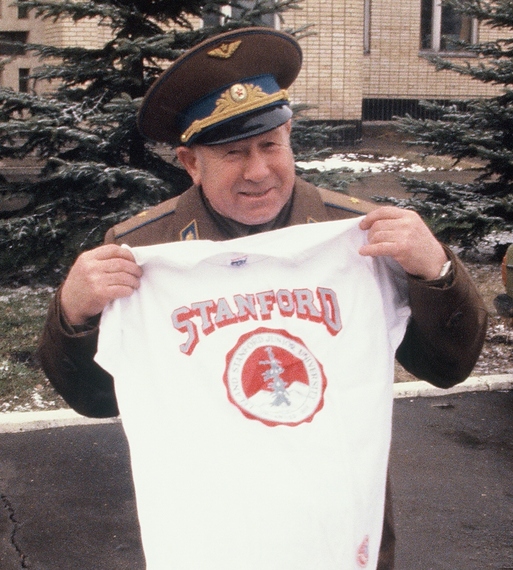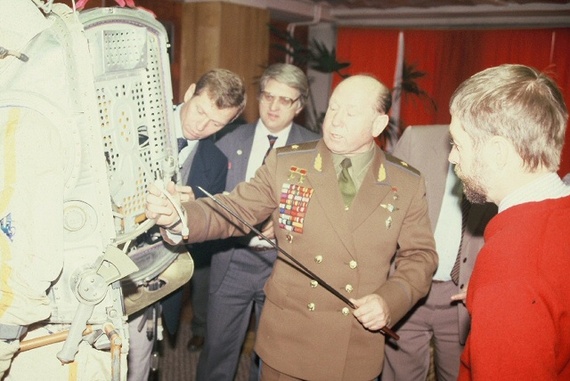With the conclusion of the Sochi Winter Olympics, Americans and our media are trying to understand if The Games amounted to a campaign of state censorship or a kind of new-order friendship. My view is that it was more of the latter. Here's why.
In the spring of 1987, as glasnost was warming and weakening the former Soviet Union, I joined a delegation of American astronauts on a diplomatic mission to Star City near Moscow, the USSR's bookend to Cape Canaveral. I'd traded my services to the nascent Association of Space Explorers for access to a rarified club of astronauts and cosmonauts, 54 of whom would ultimately take part in a graduate thesis I conceived on communications effects of manned space flight. The study and its novel survey is still cited by Mars mission planners.
Having been raised through the Cold War, we were anxious about our reception. Would we be watched? Would we truly be welcome? Could our discussions be candid? And, for me, would my survey be censored?
In fact, we were disarmed and charmed by the enthusiasm of our hosts. "Howdy, Partner!" were the first words of Maj. Gen. Alexey Leonov, shown above and below, the Soviet Union's burly equivalent to John Glenn. He seemed more the equivalent to John Wayne as he mugged and joked with the gift of a Stanford University T-shirt. The visit proceeded without a hitch and with the cordial and required consumption of caviar, vodka and the Bolshoi ballet. We were overwhelmed not by suspicion but by good manners.
To read the many headlines and tweets of the past fortnight, you'd think that Sochi was the handiwork of veteran propagandists, Russian Premier Vladimir Putin in particular. And for good reasons. By all appearances, he countered well the Peacock plays of gay rights activists through a cocktail of public Deflects and private Jams (i.e., no comments on his homophobic policies and no toleration of demonstrations). He also managed to bring The Games to a safe and orderly conclusion while Syria raged and the political lid of his coveted trading partner, Ukraine, blew off. Separating these matters was a masterwork of Passes and Pauses. So was the handling of the weather and an embarrassing lack of snow, which he used for empathetic effect. Why rationalize what can't be rationalized, was his likely thinking.
But for as many post-game accounts of spin-control there seemed to emerge begrudging stories of grace and good will that mimicked Leonov's hearty "Howdy, Partner." These were not rehearsed surrogates of President Putin's. They were bricklayers, sandwich makers and even security guards, all delighted by their guests and proud of their Sochi Olympics. They weren't spinning the ways of their new world so much as they were boasting of their opportunity to be part of it.
Sochi was a showcase for soft power strategy and there is no doubt that influence plays were being run. But there was another, more subtle, form of influence at work -- an awkward though authentic demonstration of community and the warmth and outreach that defines it. We were played by Putin, sure, but ultimately what we cannot discount were sincere intentions to show the world the good side of the Russian people and their evolving country.
Photos courtesy of Alan Kelly


